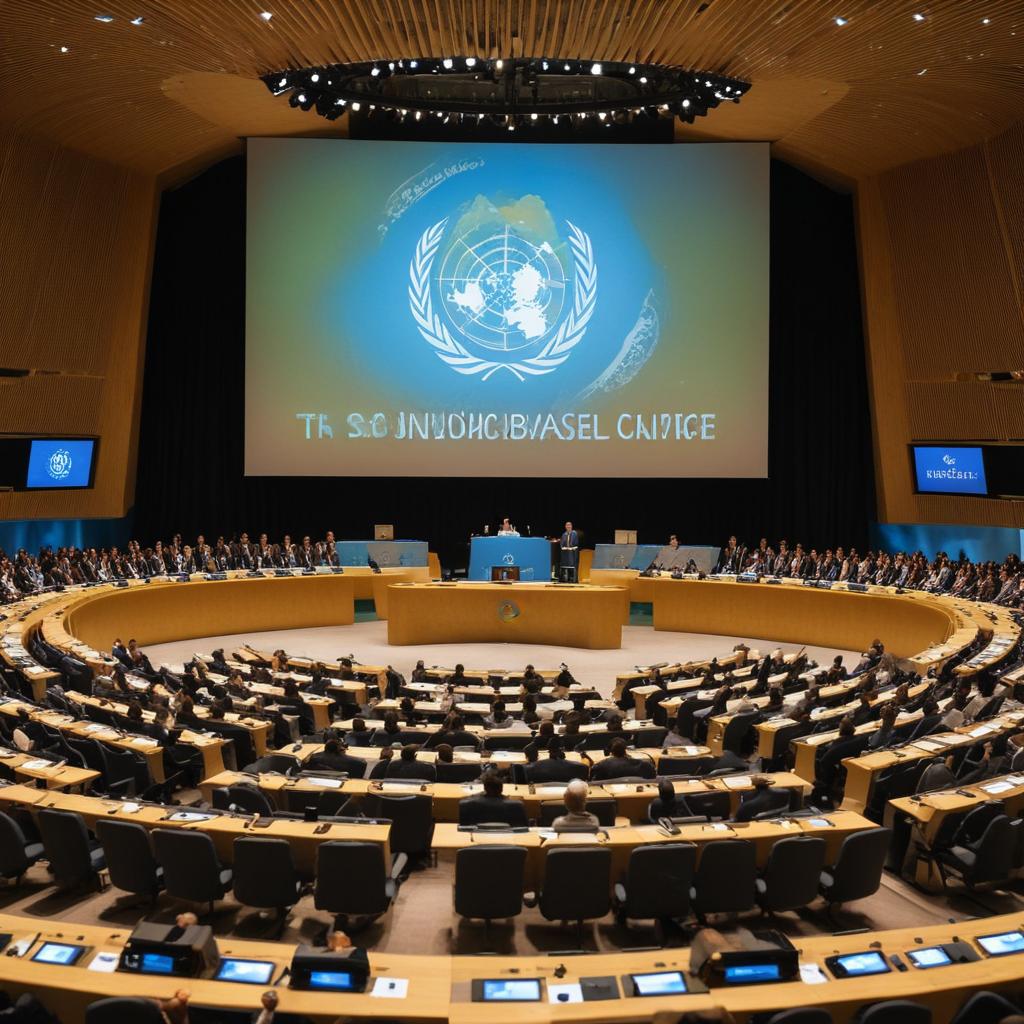After over 12 hours of tense negotiations, COP30 in Belém narrowly avoided collapse with a last-minute deal that obliquely referenced the 'transition away from fossil fuels' and secured a tripling of adaptation finance for developing nations, though critics deemed it an inadequate 'baby step.'
The 30th UN climate conference (COP30) in Belém, Brazil, was on the brink of 'abject failure' after more than 12 hours of intense, windowless negotiations. The primary sticking point was the explicit mention of phasing out fossil fuels, which was vehemently opposed by the Arab Group, Russia, and others, despite scientific consensus on their role in climate change. A growing coalition of over 80 countries, including many developing nations, urgently pushed for a roadmap to transition away from these fuels, while developing countries also sought crucial adaptation finance. As exhaustion and frustration mounted, with some delegates prepared to walk out, a breakthrough emerged in the early hours of Saturday. UK and EU negotiators held a private conversation with Saudi Arabia's chief negotiator, Khalid Abuleif, convincing him to accept wording that obliquely recognized the global commitment to 'transition away from fossil fuels' by referring to 'the UAE consensus' from Cop28. This surprise agreement averted collapse and brought a wave of relief. The resulting 'Belém political package' included this indirect commitment, alongside a voluntary, Brazil-led initiative to develop a fossil fuel phaseout roadmap to be reported next year. Crucially, developing countries secured a commitment to triple annual adaptation finance to $120 billion, though this will not be fully delivered until 2035 and falls short of their immediate needs and desired deadlines. Commitments for greenhouse gas emission cuts were also deferred, and a 'just transition mechanism' for workers in high-carbon industries was included, but critical minerals clauses were removed at the behest of China and Russia. Despite the last-minute deal, many observers, including UN Secretary-General António Guterres, viewed it as a 'faltering, inadequate step' and 'baby steps' that failed to match the scale of the climate crisis. Geopolitical headwinds, such as the US's absence and a rise in right-wing populism, were cited as contributing factors to the deal's limitations. The conference highlighted deep fissures in the consensus-based UN climate process, making progress increasingly difficult. However, proponents argued that the 'roadmap' idea, even if initially weak, would dominate future COPs and could gain legal standing. Outside the negotiating rooms, real-world progress in renewable energy investment and adoption in countries like China, India, and across Africa offered a more significant source of hope, leading some to suggest the world has 'passed peak petrostate.'



